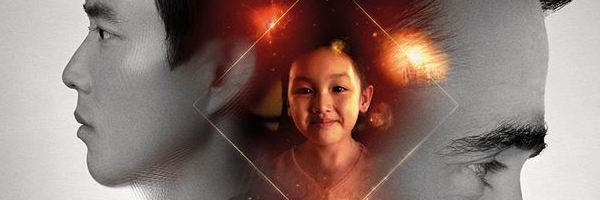AFTER YANG: chronicle
After the very beautiful COLUMBUS in 2017, Kogonada, a former essayist on the works of the great masters, is making his second feature film. A visionary, heartbreaking science fiction film.
We were feverishly awaiting the return of Kogonada to the feature film after the formidable discovery COLUMBUS, where in a city of Ohio dotted with works of architects two characters played by Haley Lu Richardson and John Cho discussed end of life, destiny and lines of leak. We tamed the personal vision of the American director of Korean origin, famous essayist of the cinema of others. The roundness of the feelings breaking with the straight and calculated lines of the sets had broken our hearts. Kogonada prefers frames furnished with interlocking motifs, characters on the scale of their biotope, rather than emotional close-ups. He offers them complex cases, as complex as what they feel. That’s how much he respects them. Where some see it as coldness and distance, others see a great spirituality in it: it is one’s environment that makes someone alive. In COLUMBUS, Jin played by John Cho declared: “They say that if you are not there when a loved one dies, their soul will wander aimlessly to become a ghost”. The living are in Kogonada responsible for the peace of the dead. This traditional vision, the director adapts it to the anticipation film that is AFTER YANG and its futuristic, post-patriarchal, post-racial, transhumanist universe. Thus a couple played by Colin Farrell and Jodie Turner-Smith adopted a little Chinese girl and gave her a robot brother, also Chinese, Yang. Together, they are a family and very quickly, from a maddeningly new and daring credits, which suggests a pop contemporaneity when she will be visionary, Kogonada imposes her ultra modern conception of the family which transcends the classic schema. Yang is therefore Mika’s brother and when he falls stranded, Mika does not have the tears of a grieving sister but develops an almost excessive despair. His father will try to have it repaired, but comes up against a technological newspeak that he does not understand and the opacity of a shady industry. He discovers that deep inside Yang lies what conspirators call spyware. The investigation of the character of Colin Farrell (shattering in the film) to trace his origin leads him to pierce the meaning behind the technology, the delicacy behind the binary. This is how Kogonada paints an ideal future, where humans would have to learn emotionally from biotechnology. When a clone asks Colin Farrell’s character “why would we all want to be human?” everything makes sense. The world of tomorrow, imagined by Kogonada, is finally decentering, the human being is no longer essential to life, any more than Western culture should dominate. Kogonada makes AFTER YANG a minimalist BLADE RUNNER, a film noir where the hero reassembles the heart map from mystery to mystery. Where, too, like Ridley Scott’s masterpiece, the future lives under Asian influence, from IT to fashion, including gastronomy. It’s not a fetish, any more than cultural reappropriation, it’s the march of the world, of progress. But this post-racial vision, Kogonada will unravel it, meticulously, never in order to oppose cultures but rather to make them fully co-exist. Political artist, he talks about tomorrow to better talk about today. In an America plagued by anti-Asian racism, the director questions this “humanism” which, according to some thinkers, should prevail over identities. He opposes to it the need for roots, self-knowledge, fulfillment and appeasement by origin. The white man can learn to mourn and, in the film’s heartbreaking moral, finally see the beauty, the rarity and the importance of what he has through the eyes of another, who does not look like him. From his vision of us to the benevolence with which he expresses it, AFTER YANG stands out as avant-garde cinema.
From Kogonada. With Colin Farrell, Jodie Turner-Smith, Haley Lu Richardson. United States. 1h45. In theaters July 6

